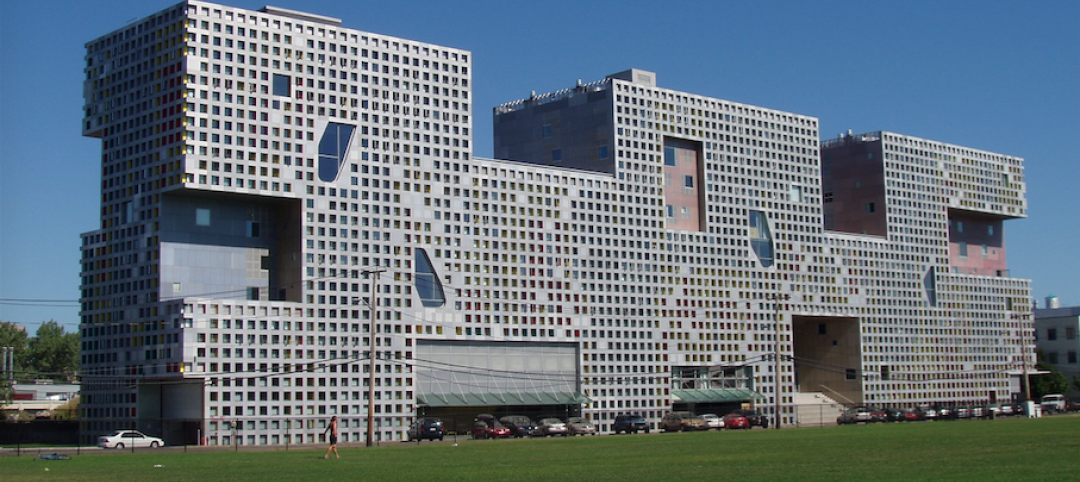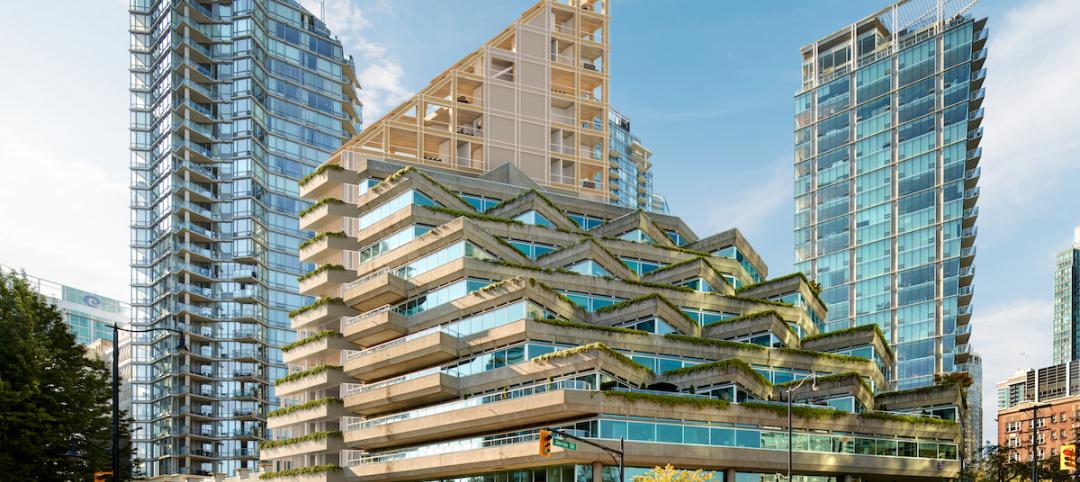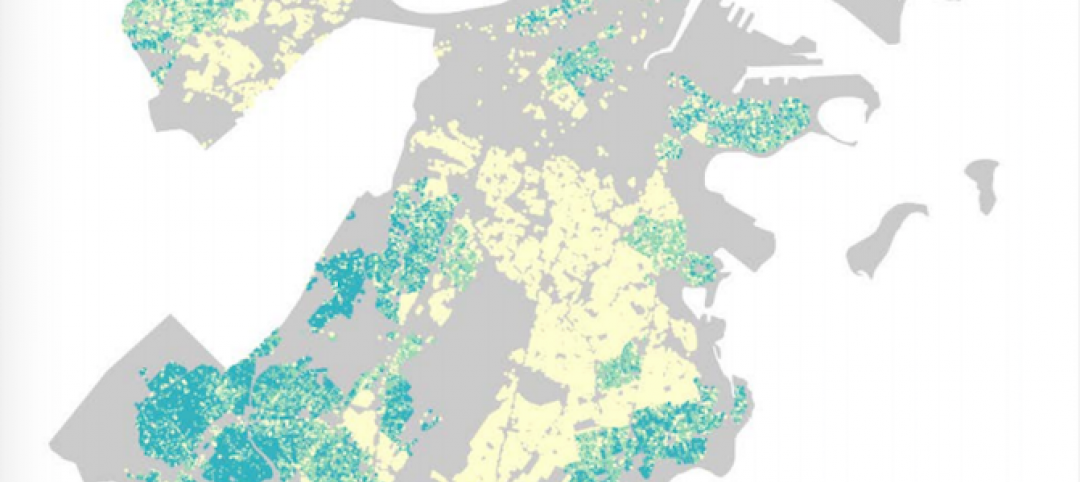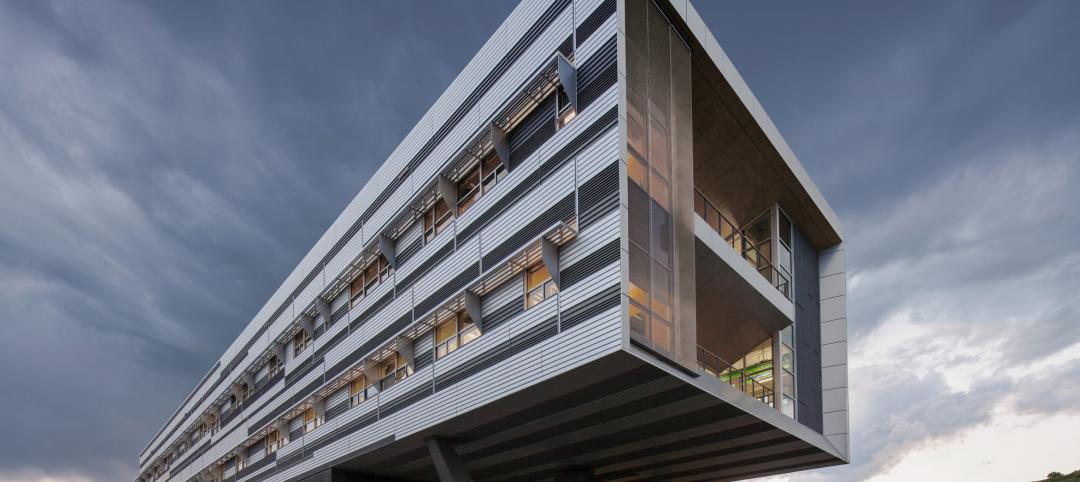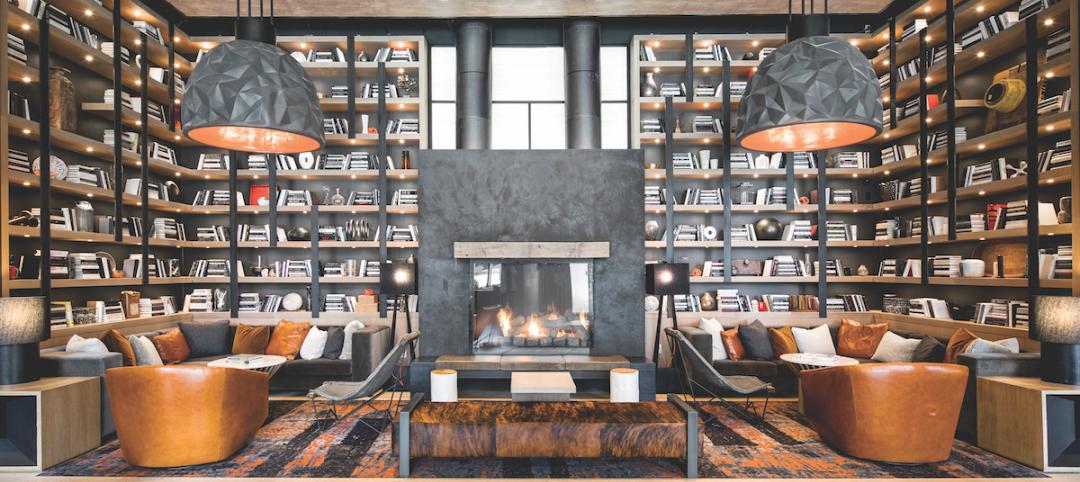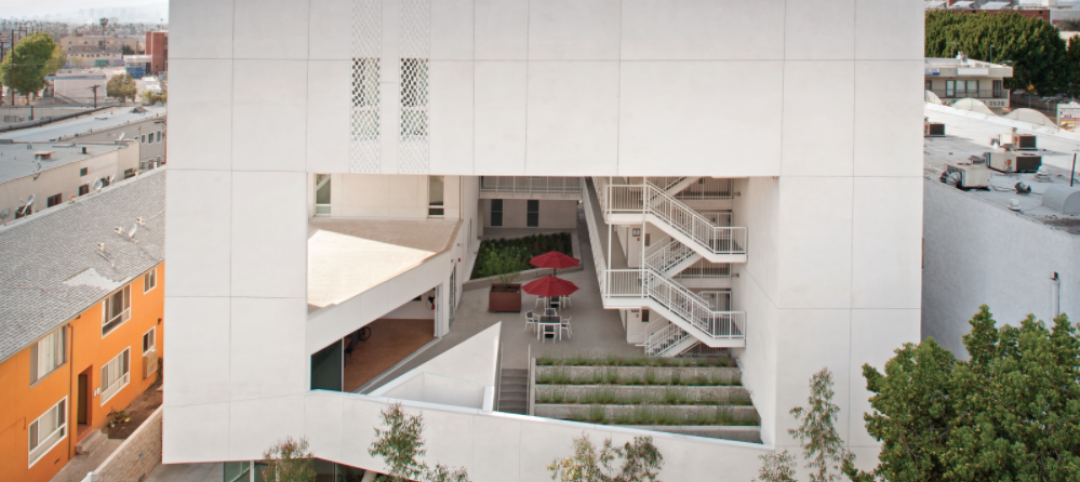Since November, Stage 3 Properties—which designs, markets, and manages rental properties in partnership with developers and investors—has been leasing Ollie at Carmel Place, a 55-unit building that is New York City’s first micro-unit multifamily development, with apartments ranging from 260 to 360 sf.
Stage 3’s “Ollie” platform offers renters the option of fully-furnished studios and shared suites, as well as access to amenities in nearby facilities that include work spaces, juice bars, pools, gyms, spas, and lounges. Ollie will even help renters find suitable roommates through its Bedvetter service.
The “all-inclusive” experience that Ollie is marketing also includes hotel-like services such as housekeeping. This week, Stage 3 announced the signing of a multiyear agreement with Hello Alfred, a personal butler and on-demand concierge service that, starting next month, renters at Carmel Place can sign up for and access through a mobile app.
Hello Alfred is a weekly subscription service that sends a background-vetted “Home Manager” to a renter’s home to take care of basic house cleaning (bed making, kitchen cleanup, etc.), laundry, dry cleaning, clothing and shoe repair, package shipping, and grocery shopping. The service starts at $32 per week.
Ollie is now Hello Alfred’s sole micro-unit partner, and charges for the services provided are already included in the quoted rents for residents.
Alfred’s CEO, Marcela Sapone, told BloombergBusiness that customers at other apartment buildings have used the service for everything from organizing receipts and meeting a cable repair person to refilling a Koi pond. If the helper isn’t able to tackle a particular job—such as plumbing or professional cleaning—he or she will find someone who can for the renter.
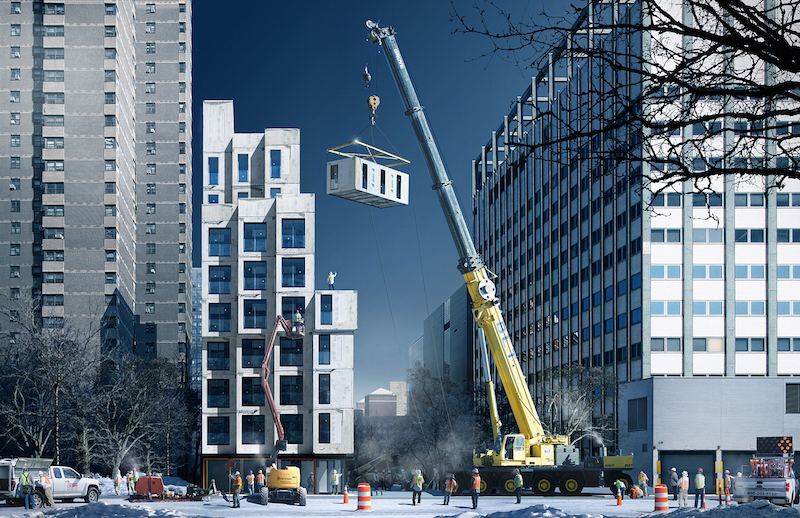
Monadnock Development assembled Ollie Carmel Place with factory-built modules for the micro apartments. The building in New York will be ready for renters to move into in the first quarter of 2016. Photo courtesy Monadnock Development.
Rents at Carmel Place run up to $3,150 per month, but 22 apartments are more affordably leased. “Carmel Place is a perfect fit for Ollie,” Chris Bledsoe, Stage 3’s Founding Partner, told Curbed NYC. “With 40% of the units allocated to low- and middle-income New Yorkers, the message of ‘inclusiveness’ is already an integral part of the community and the experience at the building. Additionally, the small unit sizes at Carmel Place afforded us an opportunity to demonstrate to the world that efficient units don’t inherently require a reduction in quality of life.”
Ollie at Carmel Place—which was once going to be called My Micro NY—was designed by nARCHITECTS and developed by Monadnock Development, which assembled the building from modular components. The development cost was $16.7 million.
Stage 3’s next market could be Los Angeles, according to its website. Hello Alfred currently has locations in New York, Boston, San Francisco, and L.A.
Related Stories
Big Data | Jan 5, 2018
In the age of data-driven design, has POE’s time finally come?
At a time when research- and data-based methods are playing a larger role in architecture, there remains a surprisingly scant amount of post-occupancy research. But that’s starting to change.
Multifamily Housing | Jan 4, 2018
Shigeru Ban’s mass timber tower in Vancouver gets city approval
The 232-foot-tall Terrace House luxury condo development will be the tallest hybrid wood structure in North America.
Green | Dec 22, 2017
Green builders can use ‘big data’ to make design decisions
More and more, green project teams are relying on publicly available “external datasets” to prioritize sustainable design decisions, says sustainability consultant Adele Houghton.
Reconstruction & Renovation | Dec 21, 2017
Interactive map includes detailed information on historic New York City buildings
The New York City Landmarks Preservation Commission launched a new, enhanced version of its interactive map, Discover NYC Landmarks.
High-rise Construction | Dec 20, 2017
Another record year for high-rise construction
More than 140 skyscrapers were completed across the globe this year, including 15 supertall towers.
Game Changers | Dec 20, 2017
Urban farms can help plant seeds for cities’ growth around them
Urban farms have been impacting cities’ agribusiness—and, on some cases, their redevelopment—for decades.
Public Health Labs | Dec 19, 2017
10 takeaways from SmithGroup’s ‘lab of the future’ initiative
The LAB2050 initiative digs into the scientific trends, technologies, and economics that will shape tomorrow’s research laboratory environments.
Multifamily Housing | Nov 15, 2017
6 noteworthy multifamily developments: artists housing, tech lofts, resort-style senior living
These recently completed projects represent emerging trends and design innovations in the multifamily sector.
Multifamily Housing | Nov 8, 2017
No place like home: LA’s The Six provides permanent supportive housing for veterans
The 52-unit development gives hope and dignity to homeless or disabled veterans and others in need.
Architects | Nov 6, 2017
How to start a negotiation: Begin as you mean to continue
How you start a negotiation often will determine where you end up, writes negotiation and mediation expert Brenda Radmacher.



